Key takeaways from week 1 of police officers' federal trial over George Floyd's death
"I knew he was going die," a prosecution witness said of Floyd.
The federal trial of three former Minneapolis cops battling civil rights charges stemming from their roles in the killing of George Floyd has been a replay, so far, of the state's case that led to Derek Chauvin's murder conviction.
Since it worked for state prosecutors in Chauvin's trial, their federal counterparts appear to be following a tried-and-true playbook, calling in the first week of the proceedings many of the same witnesses who took the stand in Hennepin County District Court last year against the convicted main culprit in the 46-year-old Black man's death.
There was testimony from a self-described "nosy" neighbor who told Floyd "you can't win" as he watched him initially resist arrest, from the paramedic who said he believed Floyd was "probably dead" when he arrived on the scene and from the young store clerk who accepted a phony $20 bill from Floyd, setting off the chain reaction that ended in the death.
Prosecutors also set out to bolster their case against J. Alexander Kueng, 28, Thomas Lane, 38, and Tau Thao, 35, by playing jurors the horrific bystander and body camera videos repeatedly shown at Chauvin's trial in which Floyd complained over and over of not being able to breathe, begging for life and losing consciousness.
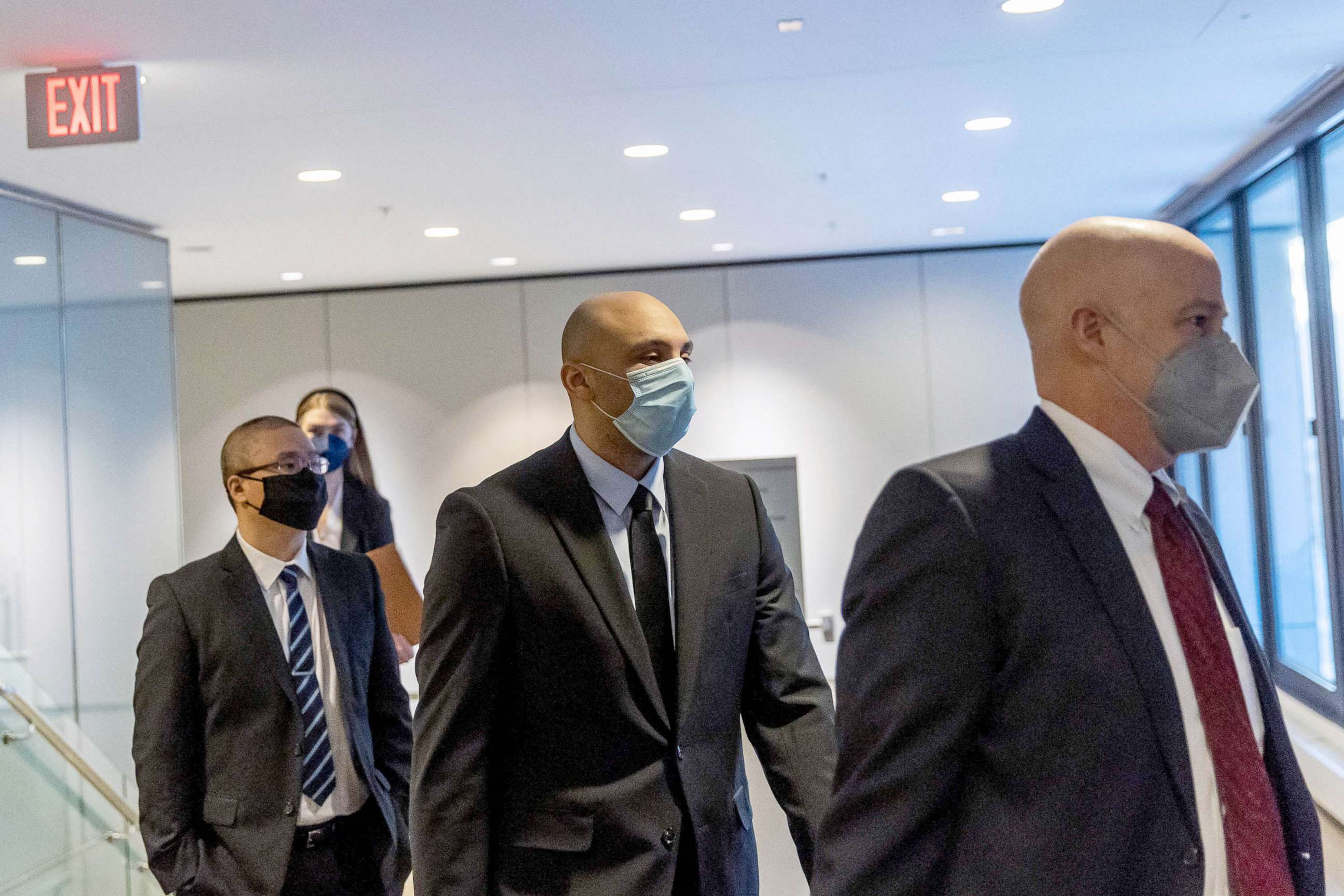
"We will ask you to hold these men accountable for choosing to do nothing and watch a man die," Assistant U.S. Attorney Samantha Trepel told jurors in an opening statement, alleging the three defendants "made the conscious choice over and over again" not to protect Floyd.
All three men are charged with using the "color of the law," or their positions as police officers, to deprive Floyd of his civil rights by allegedly showing deliberate indifference to his medical needs as Chauvin kneeled on the back of the handcuffed man's neck for more than nine minutes, ultimately killing him.
Kueng and Thao both face an additional charge alleging they knew Chauvin was kneeling on Floyd's neck but did nothing to stop him. Lane, who appeared to express concern for Floyd's well-being during the encounter, does not face the additional charge.
They have all pleaded not guilty.
The biggest takeaway
During his opening statement, defense attorney Earl Gray promised jurors they would hear from his client, Lane.
If Lane testifies, he will be the first former police officer involved in the 2020 fatal arrest to publicly speak about his role in the incident. He is expected to tell jurors what was going through his mind while he helped hold Floyd down as his then-senior officer, Chauvin, dug his knee into the back of Floyd's neck.
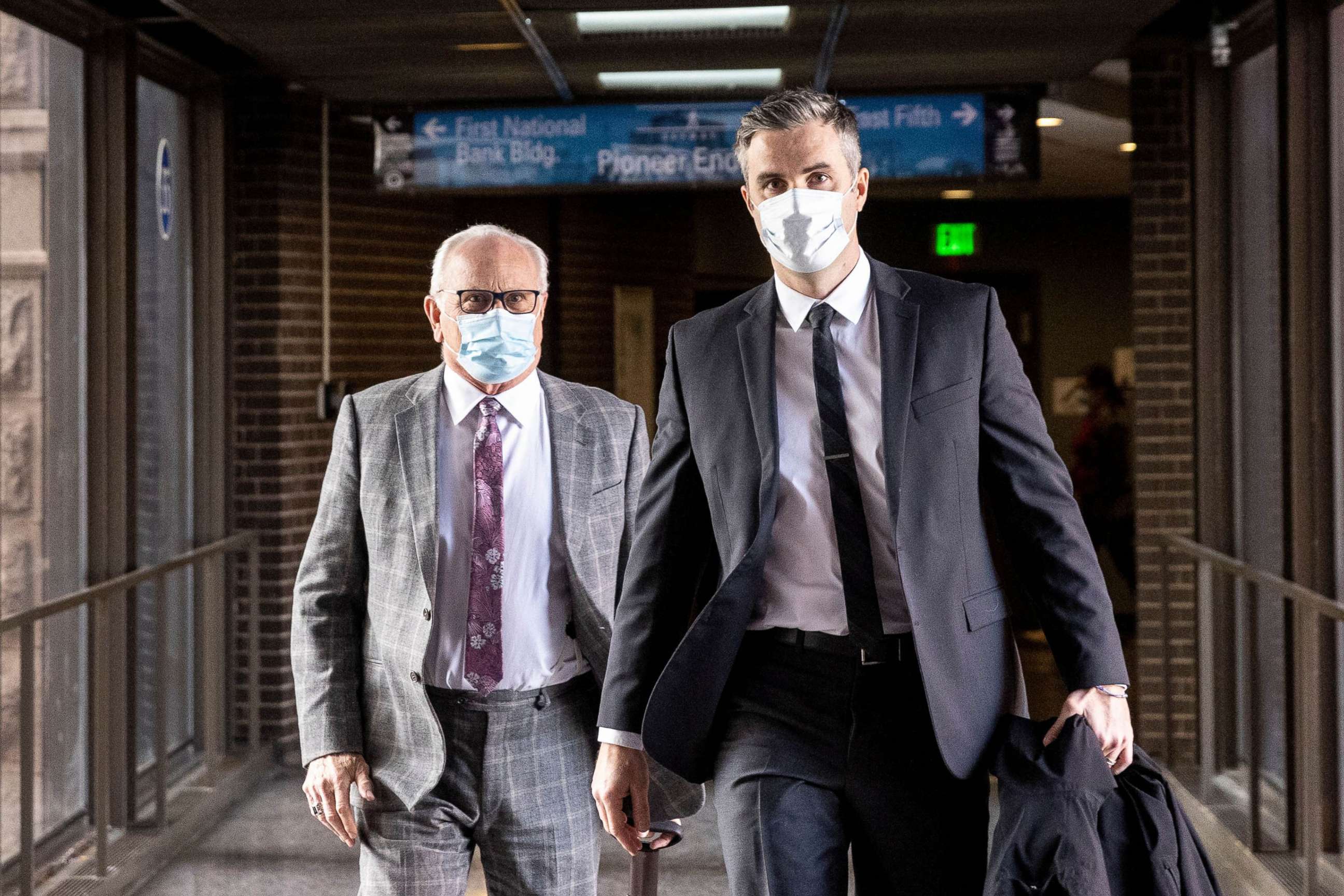
Attorneys for Thao and Kueng have not said if they also plan to take the witness stand.
Gray emphasized that Lane was "totally concerned and did everything he possibly could to help George Floyd."
Gray told the jury that Lane was the only officer on the scene who asked about rolling Floyd on his side or using a hobble device to restrain him instead. He said Lane also voiced his concerns that Floyd was exhibiting signs of "excited delirium," a syndrome in which a subject displays wild agitation and violent behavior that can sometimes lead to death.
He also said Lane was the one who called an ambulance to the scene and was the sole officer to go in the ambulance and help the paramedics try to revive Floyd.
"Not deliberatively indifferent about his health at all," Gray said of Lane's reactions during the episode.
A 'bouquet of humanity'
At the beginning of the state trial for Chauvin, prosecutor Jerry Blackwell promised jurors they would hear from a group of "normal folk" who all happened to be outside the Cup Foods at Chicago Avenue and East 38th Street in south Minneapolis around 8 p.m. on Memorial Day 2020 and watched as Floyd begged for his life until he took his final breaths. Blackwell called them a "bouquet of humanity," and Minnesota State Attorney General Keith Ellison said their testimonies were crucial in getting justice for Floyd.
For the second time in 10 months, the string of bystanders once again took the witness stand this week in U.S. District Court in St. Paul.
Among the first witnesses called was 20-year-old Christopher Martin, the former Cup Foods store clerk who accepted the counterfeit $20 bill Floyd allegedly used to purchase a pack of cigarettes, an act that prompted the store manager to call the police after Martin said he and other employees were sent out to confront Floyd about the phony money.
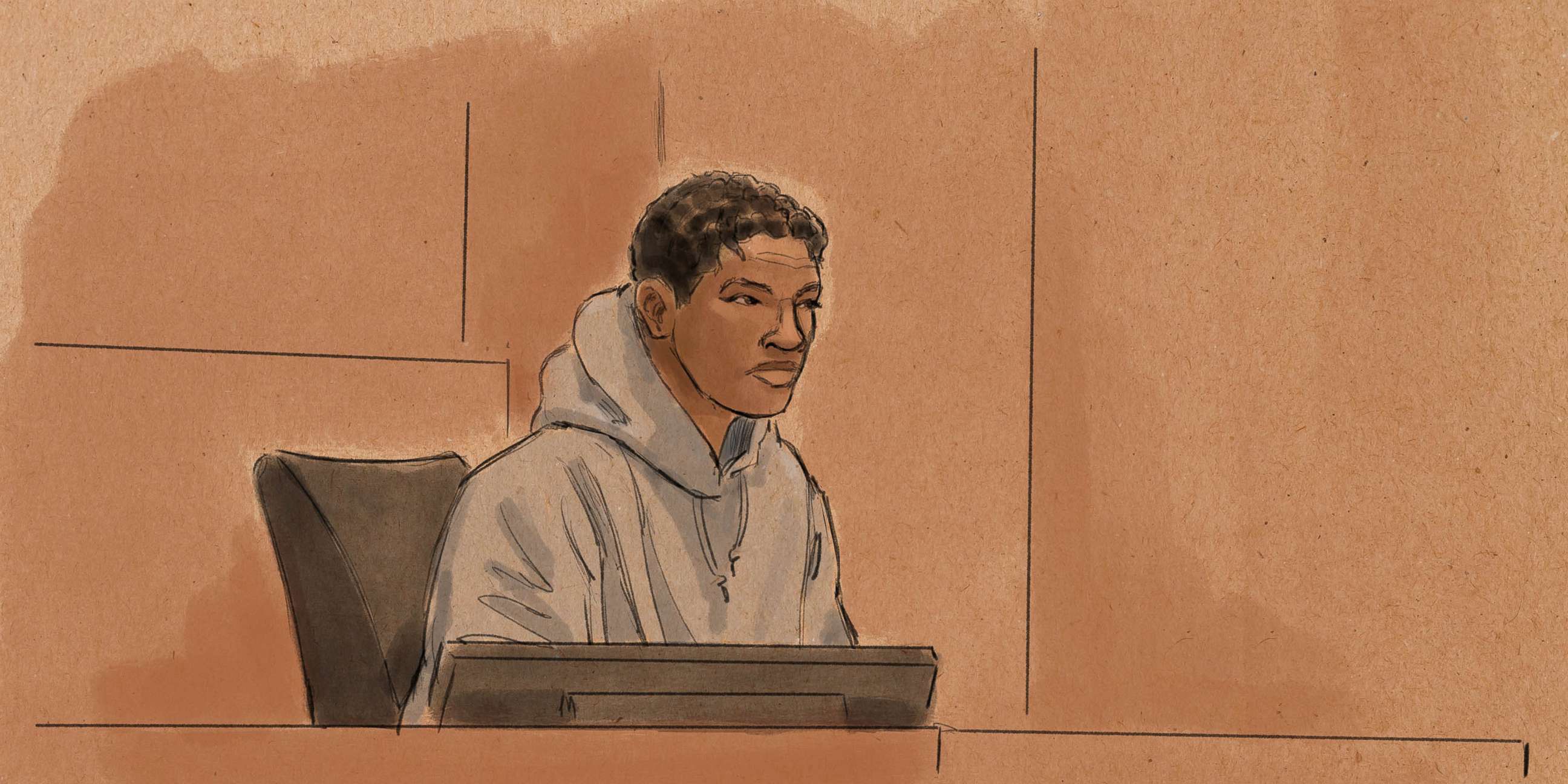
Martin testified that once police arrived he stood on the sidewalk in front of the store, where he also lived in an apartment above with his mother and sister, and realized that Floyd "looked dead" as the officers continued to hold him down, adding "he wasn't moving." He also testified that Floyd seemed "high" during his interactions with him in the store.
Bob Paule, Thao's attorney, questioned Martin on his direct testimony that Thao, who was keeping a growing crowd of witnesses at bay while Chauvin, Lane and Kueng pinned Floyd to the pavement, pushed his co-worker twice.
Paule played a video clip showing what Martin described as a push but asked whether the footage appeared to show Thao holding his hand up and asking Martin's co-worker to get off the street.
"You can see that what you thought was your co-worker getting pushed off the street was actually him not obeying a command by a police officer?" Paule asked.
Martin responded, "Fair enough."
Martin, now a college student, told ABC News after his testimony in Chauvin's case he had been racked by guilt and disbelief over Floyd's death.
"Not only am I like the contributing factor, I'm kind of like the big domino that fell and now all the small dominoes are just scattered," he told ABC News.
Charles McMillian, 62, testified that he happened upon the scene outside Cup Foods and, "being nosey," stopped to check out the commotion. He testified that when he saw the handcuffed Floyd resisting getting in a police car, he said, "You can't win," and urged him to get into the vehicle.
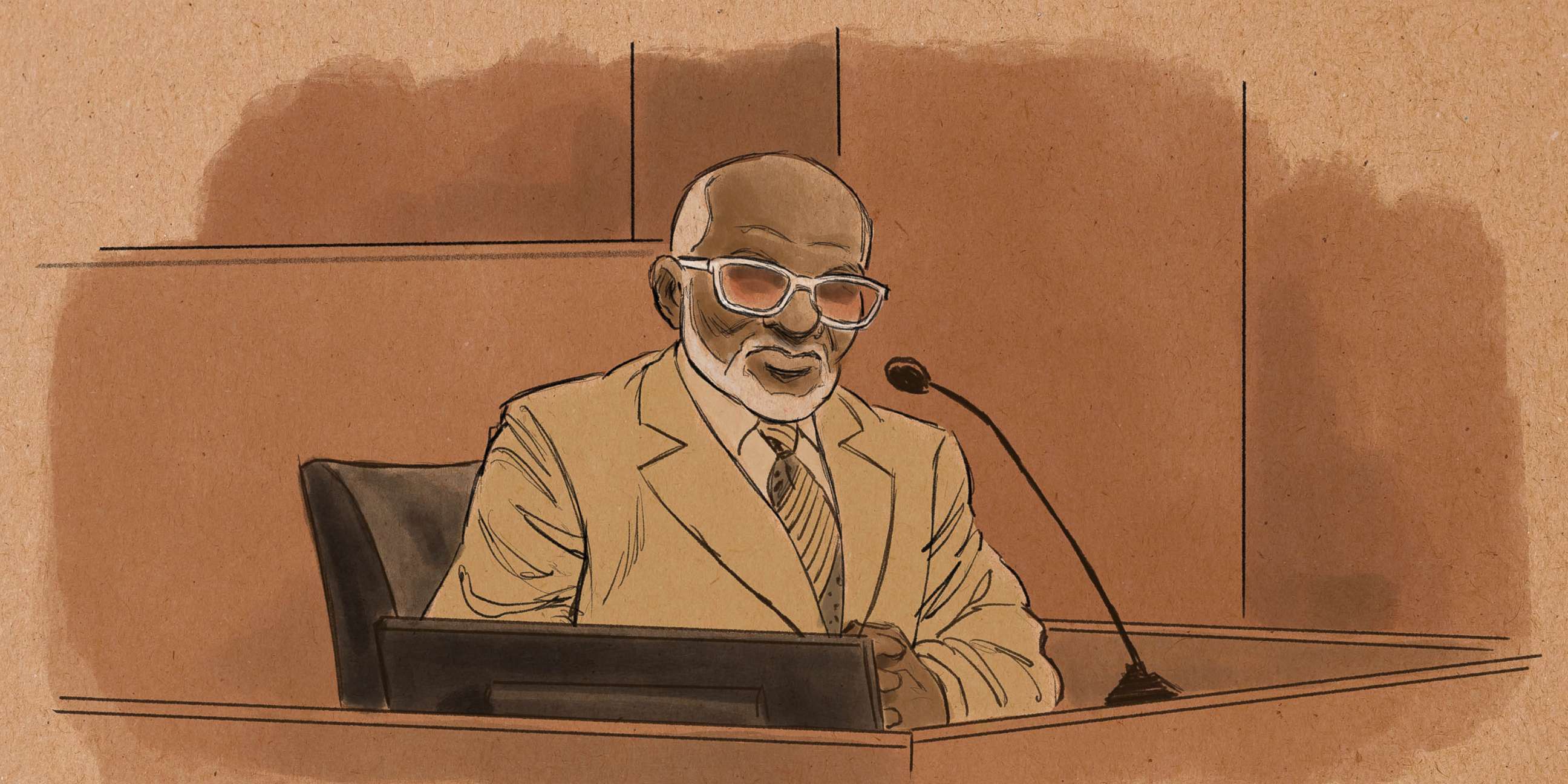
Floyd is heard on police body camera video played during McMillian's testimony responding, "I'm not trying to win." As he did while testifying at Chauvin's trial, McMillian broke down in tears as he viewed the footage at the federal trial.
"I knew something was going to happen to Mr. Floyd," he testified. "I knew he was going die."
First responders testify
Minneapolis firefighter Genevieve Hansen also took the witness stand for the prosecution. Unlike her testimony during the Chauvin trial where she took the stand in uniform, Hansen wore civilian clothes during her appearance in the federal case. Prior to the start of the trial, U.S. District Court Judge Paul Magnuson, granted a motion by Paule to bar Hansen from testifying in uniform, arguing she was off duty at the time she witnessed the fatal encounter and that it could possibly bias the jury by taking the stand in uniform.
Hansen testified that as a firefighter trained to save lives, she was frustrated when Thao held her back from providing medical assistance to Floyd, even after she identified herself as a city firefighter.
"It was just alarming, the amount of people that were on top of one person not moving and handcuffed," Hansen testified, adding that Floyd "needed help and he wasn't getting it."
While under cross-examination, Hansen conceded that the crowd of witnesses grew louder and some cursed at the cops while demanding to no avail that the officers get off of Floyd.
Paule noted that Hansen told the FBI on May 28, 2020, that a quick "load and go" of Floyd by ambulance paramedics was necessary because the scene was unsafe. Hansen, who called 911 on the police, responded, "the scene wasn't safe for George Floyd."
Assistant U.S. Attorney Manda Sertich called responding paramedic Derek Smith to the witness stand as she attempted to demonstrate that Smith and his partner were not told by the police officers at the scene that Floyd was in desperate need of immediate medical attention.
Smith told the jury that Chauvin still had his knee Floyd's neck when he first arrived on the scene and asked Chauvin to move back so he could check Floyd for a pulse. Smith testified that he couldn't detect a heartbeat and believed Floyd was "probably dead."
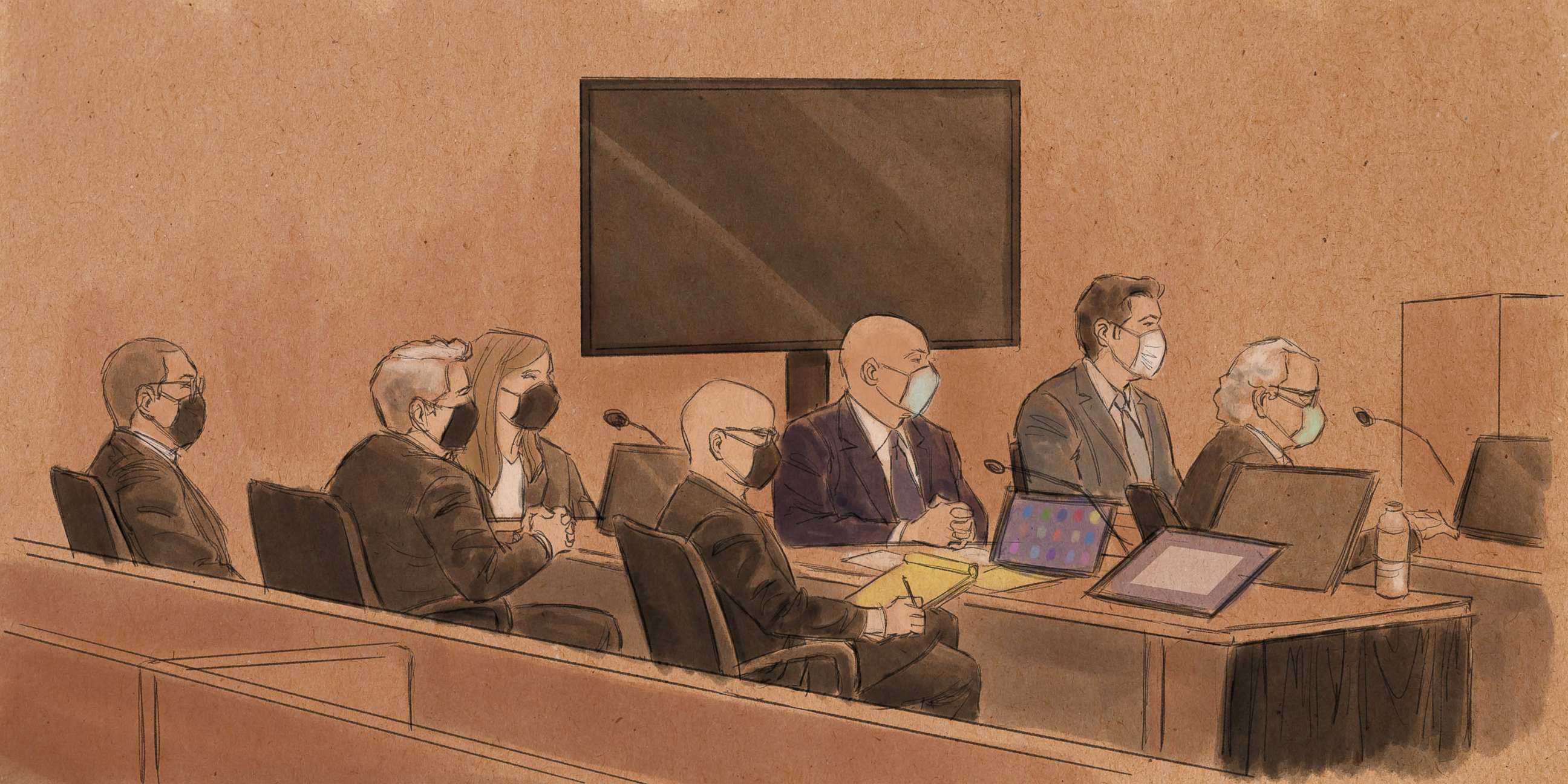
In a video played for the jury, Smith is heard asking Lane what happened. In the footage, Lane said he and the other officers responded to a complaint at Cup Foods about Floyd using fake money and that a struggle ensued when they tried to put him in the back of a squad car.
Lane was heard telling Smith in the video that he and the other officers were "just basically restraining him until you guys got here." He said nothing about Floyd's dire medical condition.
Former Minneapolis training commander testifies
Katie Blackwell, a Minneapolis Police Department inspector, took the witness stand on Thursday and testified about the extensive training all Minneapolis police officers undergo, including training in the use of force, holding one another accountable and not behaving in a way that would "sully or shame" the department.
"We have an obligation to stop another officer when force is used inappropriately or not required," said Blackwell, who was the commander of the police department's training division in May 2020.
She said the concept of intervening to stop inappropriate use of force has been "common knowledge" since at least 2016 and that the well-known creed of the agency for handling people under arrest is "in your custody, in your care."
On Friday, Blackwell was shown an MPD Academy Manual that Kueng and Lane had. It was noted that this manual has nothing to do with Thao. She was shown the "Critical Decision-Making Model" chart and a line in the manual that read, "As a Police Officer, you will be responsible not only for your actions but the actions of your partner and others."
Blackwell spoke about the importance of correcting the actions of their fellow officers.
ABC News' Janel Klein and Whitney Lloyd contributed to this report.




